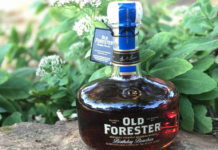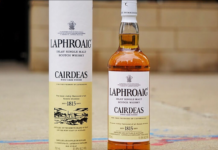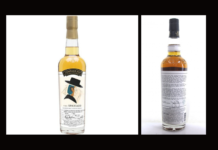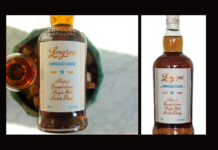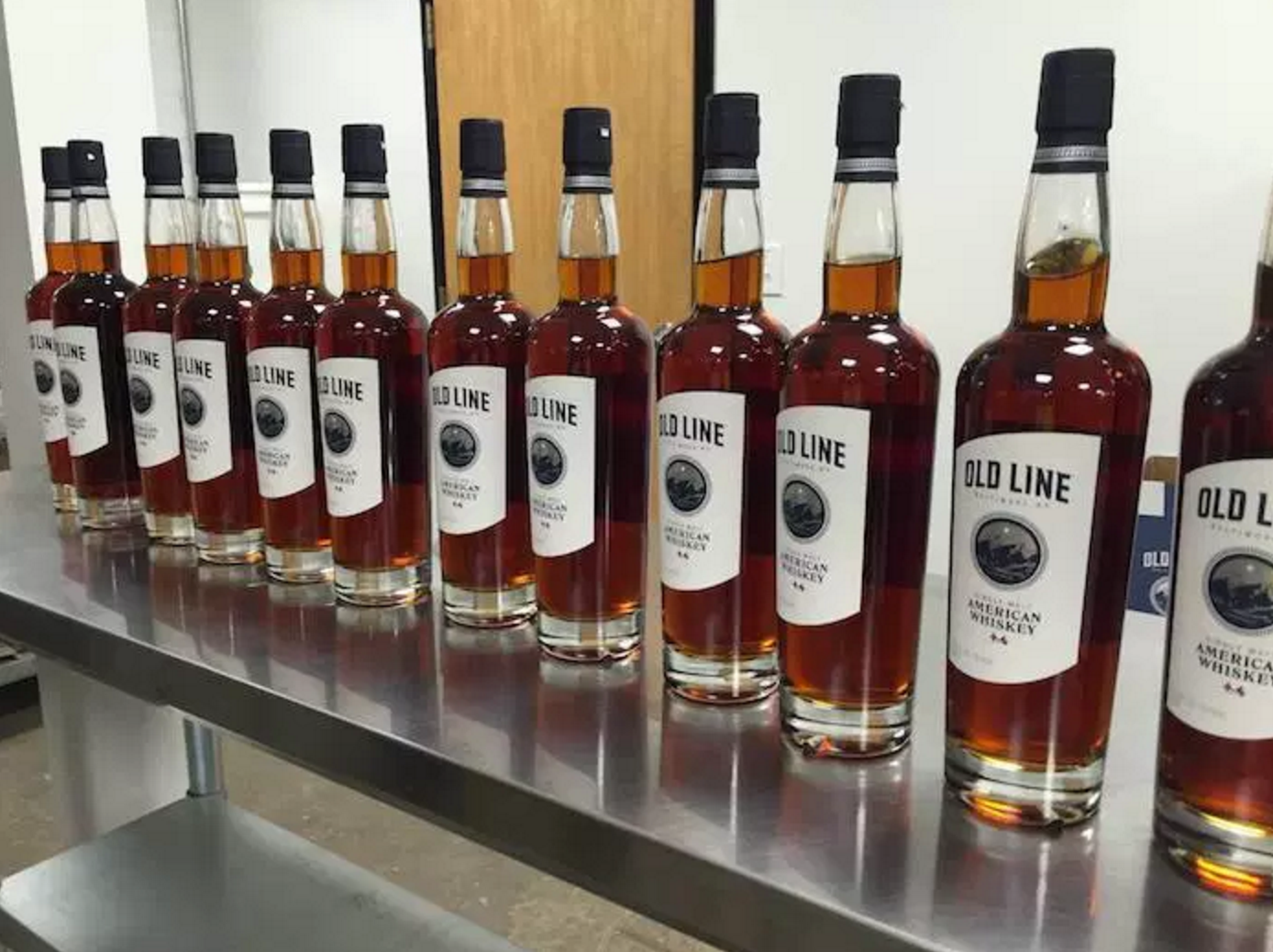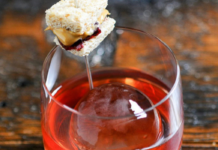Mark McLaughlin and Arch Watkins, former Naval Flight Officers with a lifelong love of whiskey met Bob Stilnovich, a founder of Golden Distillery while on a trip to Seattle. Bob, a fellow veteran, was ready to retire, so a deal was struck to pass on his recipes—and more importantly, his extensive whiskey-making knowledge. Mark and Arch set off for Washington State, where they mastered the art of distilling under Bob’s guidance. With their apprenticeship complete, they acquired Golden, and with his blessing, moved the distillery to their hometown of Baltimore.
“We’re proud to be making great whiskey here with the same commitment to quality instilled by our mentor. When we’ve completed the distillery construction, come by to a take a tour, learn the process, share some stories, and have a taste of some great whiskey.
We spoke to the Co-Founders of the Distillery Mark McLaughlin and Arch Watkins about the American Single Malt Whiskey.
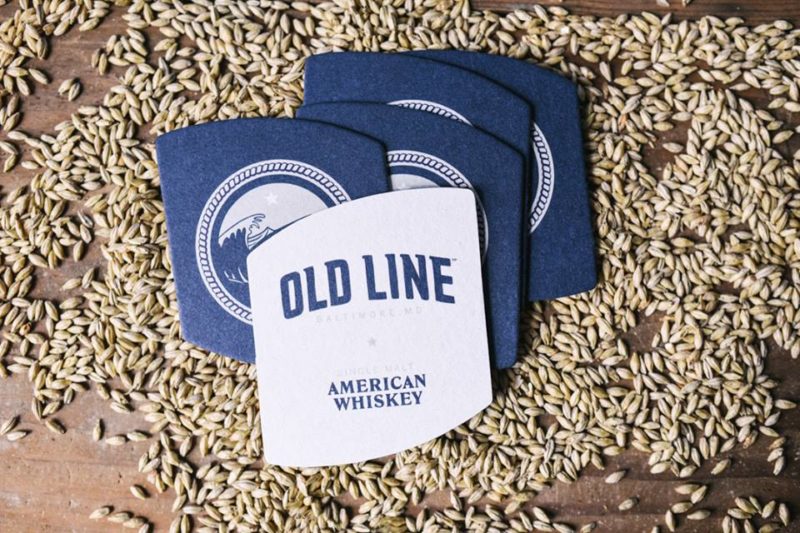 Tell us about yourself. What were you doing before you got into spirit distillation?
Tell us about yourself. What were you doing before you got into spirit distillation?
MM: I started my career as a naval flight officer. I flew EA-6B Prowlers in the Navy for about 10 years on active duty and then a few more years in the reserves. I loved the Navy but I wanted a change after a decade of flying so I left the service to get my MBA and then worked in investment banking for about two years. I learned a lot in finance but I couldn’t shake the urge to start a business of my own. The whiskey market looked like an exciting place to be and I liked the idea of making a product that I enjoyed added to the appeal. I quit my banking job in 2014, jumped into the distillery business with both feet and I haven’t looked back.
AW: I also flew jets in the Navy: EA-6B Prowlers, PA-200 Tornados (in the German Luftwaffe), and finally EA-18G Growlers in the Navy Reserve. I had an undergrad degree in electrical engineering when I got out of active duty and transitioned to the reserves in 2009, so I was lucky enough to get a job at the Johns Hopkins University Applied Physics Lab where I worked on electronic warfare projects. Mark and I were neighbors in Baltimore in 2014 and he began to talk about starting a distillery as a way to explore our appreciation of whiskey and scratch our mutual entrepreneurial spirit. I loved my job at APL, but the idea of starting and running a whiskey distillery with someone like Mark was something that wasn’t likely to come around again, so I jumped in.
 That’s a pretty distinguished background you guys had. Also first and foremost we wanted to thank you for your service! What was your vision for Old Lines Spirits. Was it a hobby or a business idea, or a mix of both perhaps?
That’s a pretty distinguished background you guys had. Also first and foremost we wanted to thank you for your service! What was your vision for Old Lines Spirits. Was it a hobby or a business idea, or a mix of both perhaps?
MM: I think the best way to put it is that for Arch and I the most important think has been to put products on the market that are of the highest quality and that we can be very proud of. That is, and always has been, the primary goal and it guides nearly every business decision that we make. And while I wouldn’t say that Old Line was ever a hobby (Arch and I have each staked nearly everything we have in this business), where we are today with regard to plans and goals for the business is bigger and more aggressive than when we started. I think the primary reason is that Arch and I discovered along the way that in we enjoy running and growing a business just as much as we enjoy making whiskey. It is competitive and challenging but very rewarding. With our personalities, I don’t think we’d be satisfied if we didn’t have our eyes set on really growing our company.
What attributes would you say are most important for a master distiller to possess?
AW: First, neither of us would ever claim to be master distillers- we’ve only been doing this for less than three years. But I would say that to be a successful new distiller that is leading people and making decisions, one would need to be organized with a high degree of attention to detail. Understanding why one batch may be slightly different than another is about experience (which comes with time and training) and a commitment to keeping detailed records and using them. While we’re building on the first piece, Mark and I put a premium on the second. We’ve even developed check lists that mirror the structure of our in-flight aircraft checklists- the mashing-in process isn’t that much different than starting up a jet engine at the highest level from a step-by-step process view point.
What challenges did you see when first trying to get this project off the ground? What were some lessons you learned that you can share with our readers possibly looking to get into the same business.
MM: There are high barriers to entry in the distillery business. It is highly regulated at every level and there are meaningful capital expenditures required. And like any other new business, everything takes longer and costs more than you’d expect. There are dozens of reasons not to enter this industry….but there were dozens of reasons not to do it three years ago when Arch and I started out the silver lining is that where there is a will, there is a way. If you had told me three years ago that Old Line would just now be having a grand opening for our distillery it would have been incredibly disheartening. But we’ve made it work and we’ve dealt with years of hurdles and setbacks one challenge at a time.
So I suppose my advice to someone setting out to start a distillery would be internalize the advice you hear, let it inform your decisions but move forward and never let the thought of failure creep into your head. If you’re going to work with a partner, choose carefully. I hit the jackpot with Arch; our skill sets complement one another, we share a common vision for the company and we were friends even before we started the business (and thankfully we still are!). We have our disagreements but from Day 1 we have fundamentally agreed upon the direction that the company should go so we inevitably find common ground. And set defined, measurable goals! Not a day goes by that we don’t reference our long term strategic goals.
AW: I think one of our biggest starting assets was a focused and detailed (no detail is too small) roadmap on what we wanted to do and how we planned on doing it. You’ll need that for informed decision making and to help raise money, if you need it.
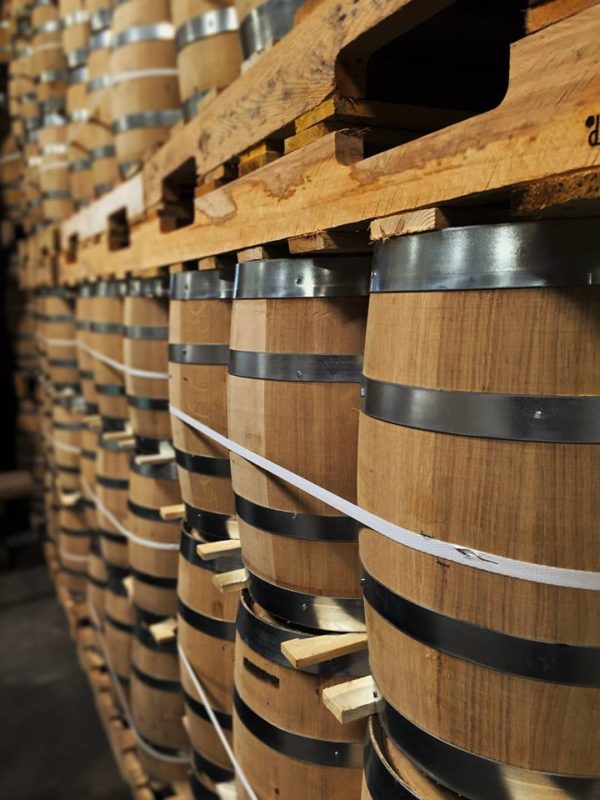 What are some of your proudest moments?
What are some of your proudest moments?
MM: Selling our first bottle of Old Line was a big moment. After years of hard work we finally had some money coming into our bank account instead of going out!
AW: Two things: when the fire marshal gave us the thumbs up and when we bottled our first bottle of whiskey in Baltimore.
What is your role with Old Line Spirits and what does your day look like?
MM: Arch and I overlap responsibilities in a lot of ways. Most importantly, we work closely together (and with our Board of Directors) to set and maintain the strategic course of the company. I handle most of the finance work to make sure we have the cash to execute our plans and I also do a lot of the administrative things that go hand-in-hand with the finance role, such as legal, accounting, insurance, etc. I also do my best to help Arch with production operations but he is the lead on that stuff. As far as a typical day, there really isn’t one just yet. Because the company is just the two of us right now we’re pulled in enough directions that no day is like the day before.
AW: Like Mark said, we overlap a lot right now. In the future, I’ll focus mostly on operations which means keeping the facility running smoothly. Since we’re only a two man operation, I also do an amateur job running social media. We both team up on sales and marketing.
“So I suppose my advice to someone setting out to start a distillery would be internalize the advice you hear, let it inform your decisions but move forward and never let the thought of failure creep into your head.” – Mark McLaughlin
What whiskey expressions do you currently produce?
AW: We’re currently only making our flagship American Single Malt, which we offer at 86 proof but we’ll also offer it at cask strength later this year.
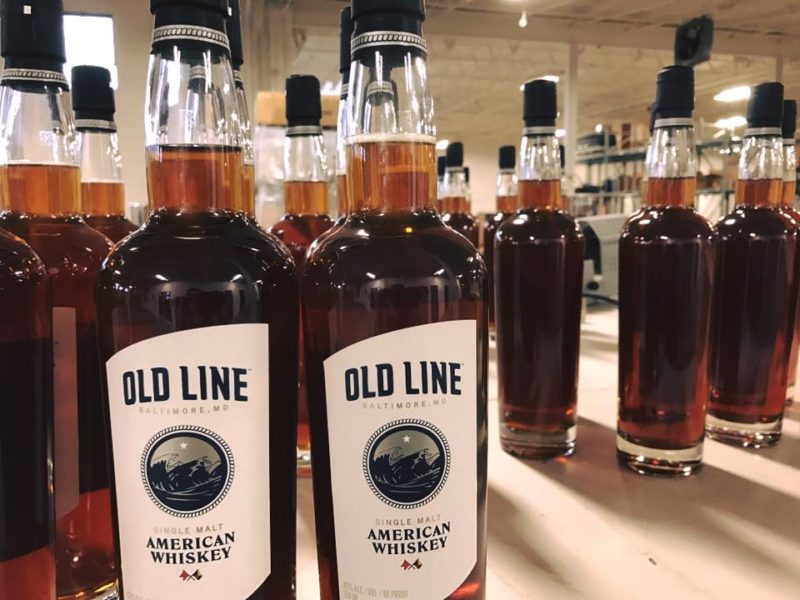 How would you describe American Single Malt Whiskey?
How would you describe American Single Malt Whiskey?
MM: I think one of the exciting things about American single malt is that the category is pretty loosely defined. There are some distilleries that are targeting a flavor profile that is similar to a Scotch and there are others, like Old Line, that are embracing an oak forward, American flavor profile. There are really great whiskies being produced on both sides of the spectrum and distilleries are exploring new directions every year.
That said, I’d describe Old Line’s American Single Malt as having an oak forward, vanilla-laden nose, much like a bourbon, while capturing the Old World, rich, buttery sweetness of barley malt on the palate. There’s a pleasant level of tannins that balance out the rich mouth feel nicely.
Do you believe now is the most exciting time to be a whiskey lover?
AW: Certainly in my lifetime. I imagine being a whiskey lover during prohibition offered a different type of excitement, though.
What are the most important factors affecting whisky distillation? How do you ensure that these are carefully balanced to produce a consistently high quality product?
AW: Grain, yeast, and water are of course the building blocks. Understanding the chemistry of the mash-in and fermentation processes and how to create the optimal environment for the yeast to thrive and efficiently and consistently produce a distillable wash is critical. We use internally developed check lists with lots of measurements and record keeping to ensure consistency. We also work regularly with mentors to ensure we’re using best practices.
Understanding the system level factors including process flow and scheduling, financial resource management, and marketing activities are sometimes de-prioritized at the craft level, but they have important second and third order impacts on distillation. Everything has to work in balance within the system and we work hard to keep that train on the rails.
How do you expand your whiskey nationally? Any plans to do so?
MM: We intend to grow Old Line in size and stature in the coming years but we will do it on our terms. Quality is everything and we will only grow the company as fast as our ability to produce and mature really nice whiskey. Expanding nationally is certainly something we think about but we’re more focused on really establishing ourselves in our home market in the Mid-Atlantic and then select other markets from there. That will keep us busy for quite some time!
Fore More Information on the Distillery Please visit the following links:
Website: http://www.oldlinespirits.com
Facebook: https://www.facebook.com/OldLineSpirits/
Instagram: https://www.instagram.com/oldlinespirits/





